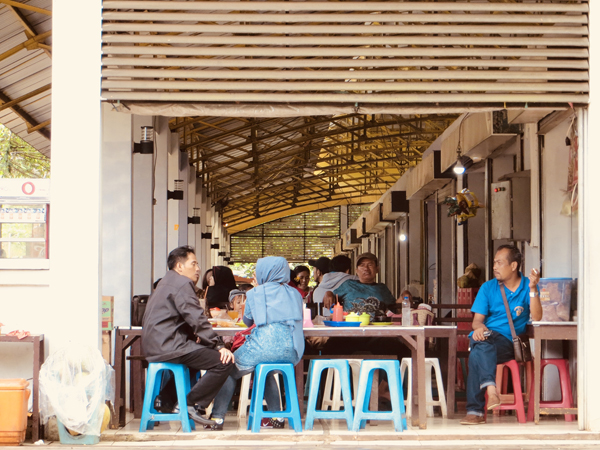
Jakarta, the bustling capital city of Indonesia, is home to a diverse range of public transportation options. From the modern Mass Rapid Transit (MRT) and Light Rail Transit (LRT) systems to the traditional buses and bajaj (auto rickshaws), Jakarta offers a variety of ways to navigate the city. The city’s public transportation is managed by several entities including PT Transportasi Jakarta (TransJakarta), PT MRT Jakarta, and PT LRT Jakarta. With the city’s extensive public transportation network, it’s entirely possible for an expat living in Jakarta to comfortably live without a car, relying on these systems and walking.
Mass Rapid Transit (MRT)
The MRT is Jakarta’s newest and most modern form of public transportation. Launched in 2019, it offers a fast and efficient way to travel across the city. The MRT is safe to use at any time of the day, with security personnel present at all stations. It’s also safe for women traveling alone and for children, with dedicated women-only carriages available. The MRT operates on a single line that runs from Lebak Bulus in South Jakarta to Bundaran HI in Central Jakarta, covering a total of 13 stations. The fare varies depending on the distance traveled, with prices ranging from IDR 3,000 to IDR 14,000. The MRT also offers monthly passes for regular commuters.
TransJakarta Bus
TransJakarta is the city’s main bus system and is one of the largest bus rapid transit systems in the world. It operates on dedicated bus lanes, which helps to avoid the city’s notorious traffic congestion. TransJakarta buses are generally safe to use, with security personnel present on board and at bus stops. However, they can get quite crowded during peak hours, which may be uncomfortable for some passengers. The fare is flat-rate, costing IDR 3,500 per trip regardless of the distance traveled. TransJakarta operates on numerous routes covering the entire city and even extends to some suburban areas.
Light Rail Transit (LRT)
The LRT is another modern form of public transportation in Jakarta. It’s a monorail system that currently operates on a single line, running from Velodrome to Kelapa Gading. The LRT is safe to use, with security personnel present at all stations. The fare is flat-rate, costing IDR 5,000 per trip. While the LRT’s coverage is currently limited, there are plans to expand the system in the future.
Bajaj
Bajaj are Jakarta’s version of auto rickshaws. They are a popular form of transportation for short trips within local neighborhoods. Bajaj are generally safe to use, but they can be a bit of a bumpy ride due to their small size and lack of suspension. The fare is usually negotiated with the driver before the trip. While bajaj are not as modern or efficient as the MRT or LRT, they offer a unique and authentic way to experience Jakarta.
Ojek (Motorcycle Taxi)
Ojek are motorcycle taxis that are a common sight on Jakarta’s streets. They are a popular choice for short trips and for navigating through traffic congestion. Ojek are generally safe to use, with drivers providing helmets for passengers. The fare is usually negotiated with the driver, but many ojek drivers now operate through ride-hailing apps like Gojek and Grab, which offer fixed prices. While riding an ojek can be a bit of an adrenaline rush, it’s a convenient and flexible way to get around the city.
In conclusion, Jakarta’s public transportation system is diverse and extensive, offering a range of options to suit different needs and preferences. While the city’s traffic congestion can be challenging, the public transportation systems provide a viable alternative to owning a car. Whether you’re an expat or a local, navigating Jakarta by public transportation is not only possible, but also a great way to experience the city’s vibrant and dynamic character.

